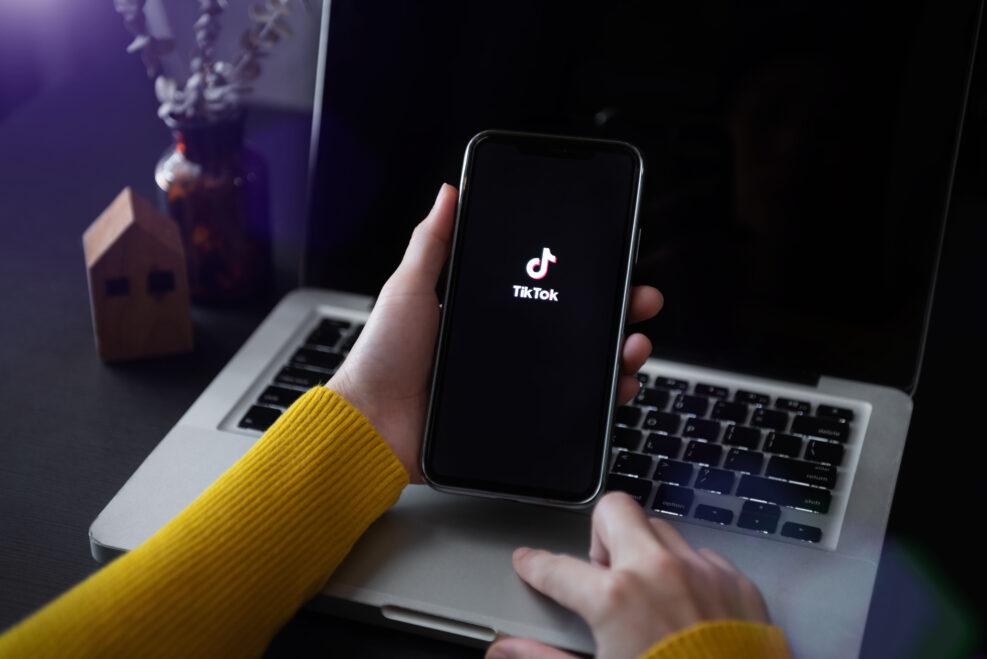
TagInstagram


Jean Twenge: Gen Z Isn’t Reading
Zoomers were born into smartphones, not Shakespeare
Andrew McDiarmid on Teens and Smartphones
We can mitigate the mental health crisis, but we have to act now.
The Atlantic Warns of Smartphones in Schools. But Is Anyone Listening?
While word is getting out, there's still a long ways to go.This week, we ran a post covering a new public policy brief from the Institute for Family Studies and the Ethics and Public Policy Center. The brief conclusively demonstrated the tangible harms involved in exposing kids to the online world before they’re ready. The researchers concluded, in addition, that parents should not give their children digital devices. The stakes are too high, from increased risk of mental health disorders to learning impairments. Such warnings have been increasing over the past few years, thanks in large part to the in-depth research of people like Jonathan Haidt and Jean Twenge. The Atlantic published an article today on how smartphones are hurting kids’ cognitive and learning capacities. Derek Thompson writes, Researchers such as Read More ›

China, Cybertheft, and the Ethics of Espionage
All nations spy, but espionage crosses a moral line when it costs normal civilians their jobs.
Is This a Moral Reckoning? 41 States Sue Meta for Knowingly Addicting Young Users
The lawsuit claims that Meta's platforms are harming its young users. The data backs it up.
Homogeneity via Instagram and the Internet
Spending too much time online shapes our personality and outlook perhaps more than we'd like to admit.
Trying to Solve Social Media’s Problems Through…More Social Media
Alternative social media apps still have to figure out ways to keep you scrolling.Last month a friend invited me to download a new photography app called “Lapse.” Perhaps you’ve already heard of it and downloaded it yourself. I decided to try it and see what all the fuss was about. The app’s opening screen was dramatic, with captions about the failures of previous social media apps to truly “capture” the present moment. The business model of social media apps, the Lapsers rightly contend, revolves around “likes” and gaining “friends.” What happened to taking pictures of real, human moments without minding the social reward they might reap? Photo-taking was about holding on to moments that mattered. It wasn’t about filters, validation, or identity. Lapse promises to be different. It’s a disposable camera on your Read More ›

National Review: Let AI Take Over Social Media Influencing
AI influencers are revealing how vapid social media really isWe’ve recently commented on the AI influencer phenomenon, which seems to be taking social media by storm. With advanced AI imaging, more AI influencers are popping up, and they already look comparable to the likes of Kim Kardashian. The social media influencing world depends on primarily women selling their bodies for revenue. Instagram has tended heavily in this direction, and with the advent of OnlyFans, the temptation to flaunt oneself so provocatively is tangible for many. National Review writer Haley Strack thinks that the AI influencer horde will out-compete real-life influencers and eventually rule out the need for humans at all. She writes, Some criticize AI for giving young men another possibly perverse, sexual outlet online — but men who Read More ›

AI Influencers Are Starting to Explode
Seeing how artificial and impersonal the influencer lifestyle already is, maybe it was inevitable.AI avatars are starting to flood the social media “influencing” sphere. Seeing how artificial and impersonal the influencer lifestyle already is, maybe it was inevitable. The “Instagram influencer” is a relatively new phenom: an attractive, usually young, person flaunts certain brands on social media for revenue. The phrase “digital creator” is a common tag on bios, and countless young women have made a living off of selling their looks on Instagram. So how might AI play into all this? Well, there are now hundreds of AI internet personalities flooding social media. And they look pretty convincing. Victor Tangermann reports, Thanks to the advent of AI-powered image generators like Stable Diffusion and Midjourney, some are now fabricating entire feeds of internet Read More ›

Twitter’s Copycat Rival is Coming to You via Meta. Will It Survive?
Meta will again co-opt the ideas of its competitors and hope for the bestMeta is reportedly trying to compete with Twitter by introducing a similar app called Threads. The app will be connected to Instagram and will allow a cross-over of followers, etc. Since Elon Musk’s acquisition of Twitter, some have complained about loosened constraints regarding speech and expression. A number of formerly suspended accounts, such as those belonging to psychologist Jordan Peterson, the Christian satire site The Babylon Bee, and a number of other (mostly conservative) voices, were reestablished following Musk’s “takeover.” Now Meta is trying to capitalize. If they’re going to launch Threads, now is probably the best time to do it. Apart from the overarching complaints against Twitter and Musk, the platform is now limiting how many tweets a user Read More ›

Blurring the Lines Between Fantasy and Reality
A "Black Mirror" episode illustrates the danger of seeing the world through an AI filterThe dystopian Netflix show Black Mirror featured an episode a few years ago about soldiers tasked with wiping out an apparently mutant adversary. In reality, the soldiers are seeing the world through an AI filter that is casting ordinary human beings as despicable monsters. The AI lessens their hesitations to kill the enemy. An article at Nautilus cited a research group that’s asking how much of that horrifying story could potentially unfold in real time, or is already happening to a certain extent in today’s culture. Social media apps like Snapchat, TikTok, and Instagram already use face altering techniques in their apps, allowing users to curate idealized images of themselves. But what happens when, as in the Black Mirror episode, Read More ›

Social Media’s Mimetic Desire Complex
The reason it makes us so miserableFrank is friends with Bob. Both Frank and Bob know Sue. Frank likes Sue. Therefore, Bob likes Sue. Conflict ensues. Frank and Bob are no longer friends. Take this situation and amplify it by a million (whatever that metric looks like) and you’ve got something like the social media world we inhabit today. This quick video, posted below, discusses “mimetic desire,” or what happens when certain ideals or images are pursued, not because they’re intrinsically good, but because it’s the current zeitgeist to want them. The problem with mimetic desire is that it eclipses legitimate desires and wants, or confuses us about what we really need in order to be happy. Watch the video for a better summary of this Read More ›

The Dark Side of Instagram
An investigative report shows that Instagram algorithm promotes pedophilia networksIt’s an unfortunate fact that sex trafficking and pedophilia rings have benefitted from the invention of the internet. Even worse, Meta‘s Instagram is amplifying the problem – not because Meta wants to, of course, but because the algorithm promotes the activity. The Wall Street Journal did an investigative report in partnership with a team from Stanford University on Instagram’s promotion of pedophilia rings, with Jeff Horwitz and Katherine Blunt writing, Pedophiles have long used the internet, but unlike the forums and file-transfer services that cater to people who have interest in illicit content, Instagram doesn’t merely host these activities. Its algorithms promote them. Instagram connects pedophiles and guides them to content sellers via recommendation systems that excel at linking those Read More ›

Social Media is Hurting Kids. Does Big Tech Care?
Body image issues, low self-esteem, and social comparison are all typical outcomes of excessive social media use among teens and childrenSurgeon General Vivek Murthy issued a warning in a briefing this week on the negative impact of social media on kids, particularly teenage girls. Murthy called tech companies to provide “safeguards” to protect children who are at a critical stage in brain development. Early exposure to social media, numerous studies show, are correlated with anxiety and depression in young people. Murthy said, “We are in the middle of a national youth mental health crisis, and I am concerned that social media is an important driver of that crisis – one that we must urgently address.” Social media could harm youth mental health, U.S. Surgeon General warns | Reuters Problems like body image issues, low self-esteem, and social comparison are all Read More ›

TikToxic: The Popular App is Feeding Teens a “Diet of Darkness”
Apart from the debate over espionage and data privacy, TikTok is a highly addictive appTikTok has gained a fair bit of fierce criticism over the last few months; the China-owned social media app is the most popular on the market, with tens of millions of users and downloads. That includes, of course, teenagers. Apart from the debate over espionage and data privacy, TikTok is a highly addictive app. We covered more on that here, but recent studies show that it’s not just the amount of time spent on the app that is troubling, but the specific kinds of content young people are ingesting every day. Julie Jargon writes in the Wall Street Journal, Data privacy, though, might be less worrisome than the power of TikTok’s algorithm. Especially if you’re a parent. A recent study found that Read More ›

Social Media’s Distortion of the Real World
Constant exposure to idealized online images impacts our expectations and worldviewHow does excessive social media use affect our perceptions of the real world? Writers Mark Miller and Ben White wrote a piece at Aeon on social media through the perspective of “predictive processing,” a term used in neuroscience and cognition. Predictive processing involves the brain’s capacity to predict error, danger, or some future event, and urge us to act accordingly. (That’s my basic, layman’s understanding of it, full disclosure!) White and Miller use temperature as an example, noting how the body may respond to a change of the environment by closing a window or grabbing a blanket to keep warm. Being able to respond appropriately to our surroundings depends on the accuracy of our mental model of the real world. Read More ›

The Clock’s Ticking for TikTok
Biden admin might ban TikTok in the U.S. if company doesn't sellThe Biden administration is considering banning TikTok in the United States if the platform’s parent company, ByteDance, doesn’t sell it. The news arrives amidst growing concerns over national security and Chinese espionage tactics, particularly in light of the “spy balloon” that was shot down off the American east coast in February. ByteDance is a Chinese company, and as such, is subject to disclose its information to the Chinese Communist Party. Today, more than half of American states have placed bans on state-issued devices out of privacy and security concerns. Texas representative Paul Michael McCaul said, TikTok is a modern-day Trojan horse of the [Chinese Communist Party], used to surveil and exploit Americans’ personal information. It’s a spy baloon for your Read More ›

Social Media Researcher Calls CDC Report “The Last Straw”
When will we finally start listening to struggling teens?Social psychologist and researcher Jean Twenge calls the latest CDC report on youth behavior “the last straw.” After years of raising the alarm about the negative effects of social media like Instagram and Snapchat on teens, particularly females, Twenge finds the situation direr than ever. It’s time to wake up and actually listen to the suffering of teens. Twenge writes in a recent post from the Institute for Family Studies, Contrary to popular belief, teen girls do not deny that social media plays a role in their misery. In Meta’s internal research on Instagram, leaked in 2021, teens frequently blamed the pressures of social media for their generation’s high rates of depression (“this reaction was unprompted and consistent across all groups,” one Read More ›

New Article Compares Big Tech to “Big Tobacco” of the ’70s
Like smoking in the 1970s — known to be dangerous yet poorly regulated — Big Tech is harming kids today yet is met with little intervention or pushbackIn a new article from Deseret News, Brad Wilcox and Riley Peterson equate Big Tech to “Big Tobacco.” They argue that the online world has the same dangers and negative effects as other drugs, and go on to cite alarming mental health data to back up their claims. Similar to how smoking was found to be dangerous in the 1970s and yet poorly regulated by the government, Big Tech is harming kids today yet is met with little intervention or pushback. They start with a powerful analogical anecdote, writing, Imagine if a man in a white panel van pulled up in your neighborhood and began enticing teens to look at pictures and videos featuring drug use, pornography and a range Read More ›